Home Front in Early WWII
It Was Hard To Keep The Good Times Rollin’
Columnist Marquis Childs said after Pearl Harbor: “Nothing will ever be the same.” Thirty-five years later he added: “It never has and never will be.” We need to remember that in 1941 as much as 40% of U.S. families lived below the poverty level, approximately 8 million worked for less than minimum wage and another 8 million were unemployed. The median income was about $2,000 per year. The government, in virtually fighting two separate wars, entered into civilian lives by raising taxes, rationing, controlling prices and allotting jobs. Once the war began, truck convoys became commonplace and train depots burst into arenas of activity. The movement was not entirely servicemen as women began to migrate into towns and communities near the military bases and jobs when they entered the workforce. Judy Guion’s (Greatest Generation Lessons) Aunt Jean did just that by going to Florida to be near her husband Dick. Minorities headed for higher paying positions in defense plants and shipyards. 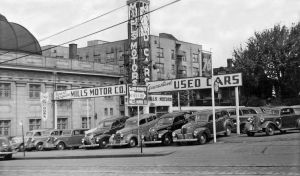 The greatest annoyance to civilians was the fact that new automobiles were no longer being produced. The public’s status symbol and route to financial and social activities had been curtailed and this caused boot-leg markets to spring up selling tires and taking their chances with the law. The La Salle Motor Company in Indiana was the first firm to be cited by the government. The Office of Price Administration would regulate everything from soup and shoes to nuts and bolts and was responsible for all domestic rationing. J. Edgar Hoover issued warnings about car thefts; alerting owners to be wary of where they parked their cars, especially during evening hours. In Southwest Harbor, Maine, reports of gasoline siphoning were a constant problem. The use of taxicabs grew throughout the world in the early part of the 20th century. In the 1940’s, the taximeter was developed and the new two-way radio was a great improvement over the old callboxes. DeSotos, Packards and the GM “General” were the common vehicles utilized for this purpose.
The greatest annoyance to civilians was the fact that new automobiles were no longer being produced. The public’s status symbol and route to financial and social activities had been curtailed and this caused boot-leg markets to spring up selling tires and taking their chances with the law. The La Salle Motor Company in Indiana was the first firm to be cited by the government. The Office of Price Administration would regulate everything from soup and shoes to nuts and bolts and was responsible for all domestic rationing. J. Edgar Hoover issued warnings about car thefts; alerting owners to be wary of where they parked their cars, especially during evening hours. In Southwest Harbor, Maine, reports of gasoline siphoning were a constant problem. The use of taxicabs grew throughout the world in the early part of the 20th century. In the 1940’s, the taximeter was developed and the new two-way radio was a great improvement over the old callboxes. DeSotos, Packards and the GM “General” were the common vehicles utilized for this purpose. 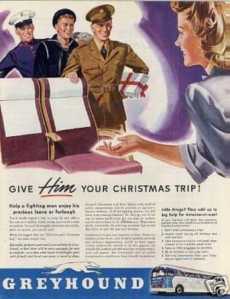 Streetcars were heavily used in the 1930’s, but companies began to fail as gasoline buses (”trackless trolleys”) took their place. The most prominent name was the Greyhound. In 1936, they introduced their “Super Coach” for family travel and it was so well received that within four years, they opened a chain of restaurants called “Post House.” When war began, they became a major carrier of the troops heading to the east and west coasts. Since nearly 40% of their workforce was eventually drafted, women were offered training as bus drivers. Local buses where often late and overcrowded, having standing room only. A person was often unable to keep a reliable daily schedule due to the situation.
Streetcars were heavily used in the 1930’s, but companies began to fail as gasoline buses (”trackless trolleys”) took their place. The most prominent name was the Greyhound. In 1936, they introduced their “Super Coach” for family travel and it was so well received that within four years, they opened a chain of restaurants called “Post House.” When war began, they became a major carrier of the troops heading to the east and west coasts. Since nearly 40% of their workforce was eventually drafted, women were offered training as bus drivers. Local buses where often late and overcrowded, having standing room only. A person was often unable to keep a reliable daily schedule due to the situation.
Air travel was certainly difficult with a war in progress and the airlines did not have the systems they have now. Case in point: the Hoover Airport (where the Pentagon building is now), had a major highway running smack through it. When a plane took off or landed, the red traffic light was switched on to halt car and truck movement. 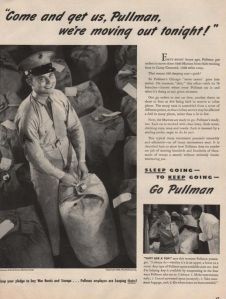 Trains were the dominate mode of transportation since the transcontinental was completed in 1869 and up until just before the war era when cars and trucks became predominate. The massive movement around the country pressed heavily on the antiquated railroad network. Most of the system had been built in the decades following the Civil War. Accounts of disastrous train wrecks appeared due to the necessity to overwork them, such as the one at Frankfort Junction in Philadelphia. Upon rounding a curve, a bearing gave way and the seventh car shot vertically into the air. The velocity of the car caused it to drag seven other cars with it off the tracks. Eighty bodies were found in one car alone.
Trains were the dominate mode of transportation since the transcontinental was completed in 1869 and up until just before the war era when cars and trucks became predominate. The massive movement around the country pressed heavily on the antiquated railroad network. Most of the system had been built in the decades following the Civil War. Accounts of disastrous train wrecks appeared due to the necessity to overwork them, such as the one at Frankfort Junction in Philadelphia. Upon rounding a curve, a bearing gave way and the seventh car shot vertically into the air. The velocity of the car caused it to drag seven other cars with it off the tracks. Eighty bodies were found in one car alone. 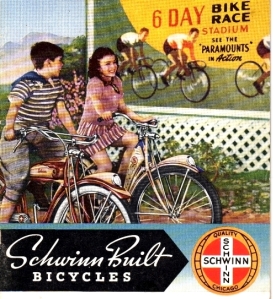 The Office of Defense Transportation urged people to only travel on “slack days” and take one-day vacations. The Director stated, “Needless passenger movement is getting to the point where it is embarrassing the war effort.” One rail line that came out of Saint Louis, called the “Jeffersonian,” had only reserved seating, but people continued to line up in the aisles. One woman, traveling from Kalamazoo to a defense job remembered sitting on her suitcase the entire trip. In Tallahassee, Florida, a man recalled signs everywhere reading: “Is this trip necessary?” In congested areas, such as N.Y.C., vendors began to spring up to rent out bicycles. In fact, the summer of 1942, when the gas pumps went dry, drivers followed a gas truck to its delivery point, (as many as 350 would line up) so the bicycle business erupted. In California, the state that received the least restrictions, bikes were in such high demand that a certificate of necessity was required for a purchase. When walking became more important, leather for shoes became scarce and shoe rationing went into effect February 1943. In the U.S., three pairs per year was the quota and in England it was only one. By 1944, the U.S. civilian ration was dropped to two pair.
The Office of Defense Transportation urged people to only travel on “slack days” and take one-day vacations. The Director stated, “Needless passenger movement is getting to the point where it is embarrassing the war effort.” One rail line that came out of Saint Louis, called the “Jeffersonian,” had only reserved seating, but people continued to line up in the aisles. One woman, traveling from Kalamazoo to a defense job remembered sitting on her suitcase the entire trip. In Tallahassee, Florida, a man recalled signs everywhere reading: “Is this trip necessary?” In congested areas, such as N.Y.C., vendors began to spring up to rent out bicycles. In fact, the summer of 1942, when the gas pumps went dry, drivers followed a gas truck to its delivery point, (as many as 350 would line up) so the bicycle business erupted. In California, the state that received the least restrictions, bikes were in such high demand that a certificate of necessity was required for a purchase. When walking became more important, leather for shoes became scarce and shoe rationing went into effect February 1943. In the U.S., three pairs per year was the quota and in England it was only one. By 1944, the U.S. civilian ration was dropped to two pair.
The old saying, “Let the good times roll” proved difficult and often the stories seem to be from another world rather than another decade. Do any of our readers have stories they remember or were told? How would any of you deal with this lifestyle?
##############################################################################
Farewell Salutes –
Van T. Barfoot – Edinburg, MS; US Army, WWII, Sgt./Korea & Vietnam, Col.(Ret. 34 years), Silver Star, 3 Purple Hearts, Medal of Honor
David Hickman – Greensboro, NC; US Army, “New Dawn” Iraq, 82nd Airborne Division
Bernard ‘Duke’ Krupnik – Riverside, CT; US Navy, WWII, PTO, USS Boston
Lou Lenart – brn. Hungary; CA; US Army Air Corps, WWII, PTO
John Leslie Munro – NZ; RNZ Air Force, WWII, ETO, “Dam Buster” pilot
Alfred O’Brien Jr. – Portland, OR; US Navy, WWII
Arnold ‘Bud’ Rahe – Dubuque, IA; US Army, WWII, ETO, 120th Infantry Reg/30th Infantry Div., Purple Heart, KIA
Arnold Sagman – Vancouver, CAN; RC Air Force, WWII
Maston Thomas – Port Charlotte, FL; US Navy, WWII, ETO, Lt., communications
Paul Zurcher – Monroe, IN; US Army, WWII, ETO, 10th Mountain Division, Purple Heart ###############################################################################
Posted on August 4, 2015, in Home Front, WWII and tagged family history, History, Home front WWII, Military, nostalgia, Tributes, USA, veterans, Vintage, WWII. Bookmark the permalink. 77 Comments.

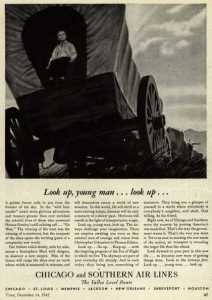
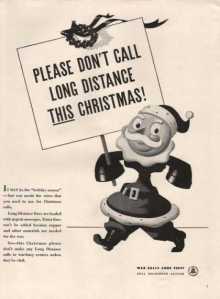
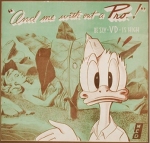
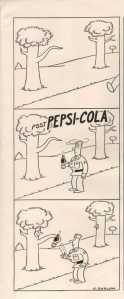
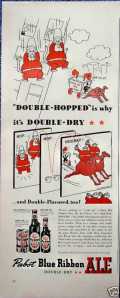







Reblogged this on PenneyVanderbilt.
LikeLiked by 1 person
I am so glad someone has been going back into the archives for other types of articles. Thank you, Penny!!
LikeLike
so that is where “soup to nuts” and “is this trip really necessary” originated
LikeLiked by 1 person
It just may be!! That is an interesting point, might be a good idea to look that up.
LikeLiked by 1 person
Great images GP!
LikeLike
Wish I could claim them as my own.
LikeLike
Interesting that walking became so important that leather became scarce!
LikeLiked by 1 person
That’s dedication, isn’t it! Could you just see people walking to work or riding bikes to help support the military today?
LikeLiked by 1 person
Hopefully the world doesn’t fall apart to the extent that it ever comes to that. But, sadly, I worry about the future.
LikeLike
I think most of us do, or at least I hope so.
LikeLiked by 1 person
Extremely insightful look into how the war years had an effect on the Civilian population.
Those times and restrictions must have played havoc with the simple daily joys of family domesticity.
The Frankfort train disaster sounds unbelievable.
LikeLike
I was hoping to get people interested in their own areas and see how WWII affected their home towns.
LikeLiked by 1 person
Great idea mate, Australia has much history through our Italian POW’s, Suchled would be a great one to expound on our side of the story.
LikeLiked by 1 person
Sounds like a plan…
LikeLiked by 1 person
PS. You tell him….
LikeLiked by 1 person
A fascinating and wonderful post on many levels. I’m a Boomer, born in 1949. I have vivid memories of growing up in the 50’s, a much simpler and less affluent time; but I’ve never known privation or true hardship. It’s embarrassing how easy we have it today, and how much we take for granted. If I could somehow conjure up all the people who lived thru the era you’ve described, I’d shake every one of their hands with admiration and gratitude.
LikeLiked by 1 person
Very well put Mark. We are almost the exact same age, so I can relate to what you said and I’d be there shaking hands as well!
LikeLiked by 1 person
My mother used to tell about riding to work with my ( to be ) aunt to save gas , and always worrying about tire rubber . She used to say that my father , a Navy officer aboard ship , had all the eggs and butter .
LikeLiked by 1 person
Well, there you go. Can you imagine people doing that now? Today everyone expects the government to supply everything for the military AND themselves and the country climbs further and further into debt to China for the money. We’ll never see another generation like our parents’.
LikeLiked by 1 person
Really interesting stuff! Although a car buff, I did not know about La Salle (whose cars are favorites for custom cars now) nor about the train wreck. And certainly, our society today is ill equipped to deal with such a situation. Heck, many people won’t drink tap water.
LikeLiked by 1 person
I know I’ve gotten spoiled with bottled water. I used to call ‘those people’ Yuppies. But since I moved to this house, the water system tastes like chlorine – so now I’m a bottle-baby too! 😉 Glad you like the post, Koji – thanks for reading it.
LikeLike
I think it is next to impossible for us to comprehend the America of the early 1940’s. The population of the U.S. in 1940 was 132,164,569 of which 45,166,083 were working in one capacity or another — a great number in agriculture. Median annual income for men was $956 and for women $592. Only 5% of the population had a Bachelor’s degree compared to 28% in 2010.
Average monthly rent for urban residents was $30.83. For those living in rural areas, the average monthly rent was $18.35. Only 31% of rural farm families had electricity, 18% had running water, and 79% had an outside toilet, i.e., an outhouse. Ref: 1940-2010: How Has America Changed. http://www.census.gov/library/infographics/1940_census_change.html.
LikeLike
Prices and wages is a difficult way to judge the differences – things were all relative. I copied this from the Experience Project.com:
1940:
Milk: 34 cents/gal
Eggs: About 45 cents a dozen and $1 for 26 eggs.
Bread: 8 cents/loaf
Postage Stamp: 3 cents
Car: $800
Gasoline: 18 cents/gal
Move TIcket~24 cents
House: $6,550
Average Annual Salary: $1,900
Minimum Wage: 30 cents per hour
I think judging 1940 is hard for us because of our mind-set. With everything today being politically correct, every word and action under severe scrutiny – it was a different world all together back then. The free nations were in jeopardy and they fought with everything they had to save it. Nowadays we have to analyze everything to death before we take action.
I look forward to our discussions, Alan – thanks.
LikeLiked by 1 person
this was really fun to read. It brought back memories and makes me know I should do another Connie’s memories blog with what I remember. I was 4 in 1942 and I don’t remember anything difficult about it. We did have rationing and coupons and I expect it was much harder on my parents. It was about that time that my father quit working in the shoe factory and bought a shoe repair shop from a man wanting to retire. Now I know why people had their shoes repaired, men and women, with new soles. I remember customers calling my father Sunday morning before church asking him if he would meet them on the way so that could get their good shoes for church. He always said yes, and we would rush to meet them at his shop, then on to church. He used to go to the dump(open in those days) and pick up the left over leather that the shoe shops threw away to use at the shop and at home.
Someone mentioned butter and margarine. That was when and why margarine was discovered, and we were happy to see my mother stir in the packet to make it look like butter. It tasted better then Crisco and sort of like the margarine we have today. My uncle owned a farm so he gave us butter once in awhile.
My mother learned to be a really creative cook but we never went hungry. they started selling horse meat steaks once in a great while because there was no beef. Tasted the same. We had a lot of vegetable soup with bread. Baked beans an brown bread every Sat. night. and Sunday dinner was always chicken. It was the only real meat we had. Lots of Spam, and baloney.
Black outs were fun. We got to pull all the really black shades, That was when I was really young. No lights outside at all.
My mother and father took turns with many other adults in town to be spotters. My father would come home from work, My mother would walk down town, they had spotters on the tallest buildings looking for enemy planes. I lived in central Maine so they had to watch for planes incase they were missed in Canada.
We had heavy paper books of planes we could press out and make and fly. We got to know all of the American planes, and since they took off from a base 50 miles away we could still see them fly over.
We had no car and a party line. We had a big garden, my mother and everyone else did a lot of canning and cooking. We always had cookies and deserts. We did not feel deprived. Our parents did a great job of making us feel loved and we were happy. It would take some adjusting for people now, but I think people would get used to doing with what was available, and it might even be better for everyone. It certainly brought everyone close and we recycled everything. No GMO’s, no waste. Sorry, this is so long, it started me thinking of how very fortunate we were growing up in the 40’s.
LikeLiked by 1 person
Don’t apologize for the length of your comment, Mrs. AP!! I am always asking people to include their memories or those of relatives, neighbors, etc. I want everyone to feel that this is their site too. Many of the commentors talk to each other rather me – and that is great – it helps to cement our little group together. I certainly hope we’ll be hearing more from you and if a ‘Connie’s Memories’ post is what I think it is – yes! do it!!
LikeLiked by 1 person
Very interesting post. My grandparents went to San Francisco from Britain in 1943 to broadcast propaganda to Malaya. To them the rations in America were bountiful compared to England.
LikeLiked by 1 person
Remember your parents’ stature, their job, etc. Plus, you had already been at war for 2 years before we got into it. For a very good example – please read the comment left by Mrs. American Patriot right after your comment, great memories of the home front.
LikeLike
Fascinating to recall.
I can remember when butter was an unheard-of luxury, bread-and-‘dripping’ was the substitute, and that when I first tasted white bread, after years of brown only, I thought it was cake. Toys were few and far between – one made one’s own or fathers made them – when and if they were home.
LikeLiked by 1 person
Exactly! people today wouldn’t think of giving their children a homemade toy!! Butter went to the military, at home was the wad of grease with a yellow pill in it to color the stuff. Thanks for visiting today!!
LikeLike
That was great. I didn’t know the half of it. I worked in advertising art for a while and love those ads, they’re terrific.
LikeLike
Oh, you’re right!! I love the old ads – well – I guess you can tell that, can’t you?!
LikeLiked by 1 person
Interesting read. I see a nation pulling together for a just cause, but I bet it felt differently back then. California recently started water rationing. On a small scale, the mindset is similar, though much less noble.
LikeLiked by 1 person
Interesting comparison, Jacqui. You are quite right. For those who didn’t want to ration the water, do you think the fires will teach them to listen in the future?
LikeLike
Reblogged this on Janet’s thread.
LikeLike
Thank you for enjoying the article enough to re-blog it, Janet.
LikeLike
I was pleasantly surprised when living in NY and studying in early 1970’s bikes rode the opposite direction to cars driving and that I thought was very smart as bike-riders and car drivers could “look each other in the eye” 🙂 Now that bike lanes are dedicated more and more we should get back to bikes, cars are way too numerous
LikeLiked by 1 person
It would be great exercise too – something we could all use I think. I appreciate you sharing today, Ina.
LikeLike
My mom used to tell me stories about rationing during the war; sugar, eggs, gas, meat (parents ate meat) and how there weren’t really any complaints because everyone felt they needed to “do their part” for the war effort.
LikeLiked by 1 person
Very true. It was great that your mother shared the stories of her younger days. They kept trying to teach us, didn’t they?!
LikeLiked by 1 person
I know! And now that she’s gone, I wish not only that I had listened more closely, but that I acted like I cared…miss my mom!
LikeLiked by 1 person
When we’re young, we don’t seem to appreciate them as much as we should.
LikeLiked by 1 person
That’s what I’ve been trying to tell my son, but he’s not buying it lol. It will be his epiphany one day.
LikeLike
As it has been throughout history. In the diary of Marcus Aurelius, he speaks of his teenage children as tho he was alive today – even a King in ancient times had the usual parent problems!!
LikeLiked by 1 person
My mother told me stories about ration coupons, victory gardens and stockings but that was about it. Thank you for sharing this.
LikeLike
You are very welcome. While researching for this, I found so much info, it was difficult to keep it at a reasonable size post. I appreciate you coming to read it.
LikeLiked by 1 person
I was not born until the 1950s but I know how much people hated rationing, which lasted for years after the conflict. Sweet rationing was not too popular with certain sections of society, nor was the ease with which many people seemed able to avoid food rationing, as top restaurants still managed to stay in business without too many problems.
LikeLiked by 1 person
No one likes giving up the niceties of life. The Black Market existed and often power had its privileges, but I think they survived much better than present day people would under similar circumstances. I appreciate your input here, John.
LikeLike
Yes, in Britain, rationing ran well into the 1950s. I sometimes wonder if it wasn’t food rationing that gave Britain a reputation for “bad” food.
LikeLiked by 1 person
I didn’t realize Britain rationed quite that long. The US started its boom at that time. But as far as their ‘bad food’ reputation, [my ancestry is mostly British] NO, as far as I know – it’s always been bad. 🙄
LikeLike
For most of us, our point of reference in our personal experience and we rarely step away to think about what was happening in other places, other countries. As for food, I’ve enjoyed the food in Britain; it was what I was used to eating, but it wasn’t bad.
LikeLiked by 1 person
Agreed. As for British food – it’s a matter of taste.
LikeLike
How can steak and kidney pudding be bad? We have a great food heritage, it just got swamped by all the international foods on offer after the 60s. They say over here, that the national dish is now a MacDonalds, or a Chicken Curry!
We still have some classics though. Not least a Cornish Cream Tea, Pork or Game pies, and delicious Cornish Pasties. You have to be shown where to get the best things, by a local.
Best wishes, Pete.
LikeLiked by 2 people
It’s just not what we’re used to, I suppose, Pete. I had a boss who made kidney all the time – I just couldn’t take to it; and I’ve never had Cornish Pasties. [so I guess I shouldn’t talk, eh?] But I agree – MacDonald’s and Chicken Curry shouldn’t be ANYBODY’S national dish!!
LikeLike
Food rationing in the United Kingdom did not end completely until July 1954. http://news.bbc.co.uk/onthisday/hi/dates/stories/july/4/newsid_3818000/3818563.stm.
LikeLiked by 1 person
I see restrictions gradually began to be lifted in in 1948, but I never thought about how the prices would shoot up like the British butchers talked about and the bartering system ending…. a lot more to it than meets the eye. US rationing ended in 1946. As you know, I am not that adept in the ETO, so I appreciate your input.
LikeLike
The extent of rationing in Australia and New Zealand during World War II would be interesting to know. I wonder what the situation was with regard to the distribution of food and goods in the Philippines, Korea and Japan at the end of the War. Have you noticed that there seems to be a tendency to write about war but not the aftermath?
LikeLiked by 1 person
Very true, Alan. I have had some insight into it by the past few books I’ve been reading where the soldiers and researchers are returning to the battle areas. Some of that data is only now being published.
LikeLike
Speaking of books . . . . If it is not already in your library, Gordon L. Rottman’s World War II Pacific Island Guide is an extremely valuable reference. It was published by the Greenwood Press of Westport, Connecticut in 2002.
LikeLike
I’ve made note of it, Alan. Thank you. One day I really do need to update my bibliography.
LikeLiked by 1 person
Reblogged this on quirkywritingcorner.
LikeLike
Thank you for including my article on your site.
LikeLike
I am always grateful not to have lived during this time. So many hardships. A fascinating look into life for those who did not go to war.
LikeLiked by 1 person
Some people glorify and romanticize the era. I hope I get across the pride I see in them, because of your reasons. It was a very tough time to be alive. I wish people realized just how good they have it now and quit ranting and raving about everything! They should get the drift of your website and enjoy life! Thanks for stopping in, Sue.
LikeLiked by 2 people
What a lovely reply GP! Yes we try to inspire people to live every moment. Life is a gift and we have so much.
LikeLike
Not sure how I would manage, although I would probably be happy with only one new pair of shoes a year. Pleased to see our famous Dam Buster pilot in the farewell salute. Thank you for honouring him.
LikeLiked by 1 person
You are very welcome. Yesterday and this morning I am seeing more and more articles concerning your pilot and their work – it IS great to see! Thank you for stopping in, Ann.
LikeLiked by 1 person
We forget that rationing affects much more than just food. Each ‘ration’ has a knock on effect on other products often taken for granted. They were very difficult times indeed and I do wonder how we would manage today.
LikeLiked by 1 person
Today? Most of the people would cave. IMO. We seem to have developed selected amnesia about a lot of things.
LikeLiked by 1 person
I think you are right. It’s like a lot of ‘bad’ things, we forget how bad it was and seem to remember the nicer parts skewing our perception of what it was really like.
LikeLike
Memories are like that. I think our brains do it to keep us sane. If we remember too much of the bad – we’ll snap. [with all the ranting and raving going on in some blogs – I think it might be too late for some of us… ]
]
LikeLiked by 1 person
I think you’re right!
LikeLike
Ya gotta smile at that one!!
LikeLiked by 1 person
This was interesting to read, from a British point of view. The general feeling over here during the war, was that Americans had everything they wanted. When the troops began to arrive in the UK from the USA, they had cigarettes, chocolate, gum, soft drinks, and nylon stockings; all scarce, or unavailable here at the time.
I doubt anyone here even realised that there was poverty in America, let alone rationing, or any hardships at all. Everyone was jealous of the Americans, who seemed to have lots of money, and plenty to eat. This ‘myth’ has persisted to this day, and is still talked about by older people in Britain.
Best wishes, Pete.
LikeLiked by 1 person
As you can see, it is a myth. Coming right off the Great Depression which had devastated most of the country in 1929, now with a war were asked to give up even more. It was only because of their sacrifices that the soldiers had as much as they did. [many had more in the service than they ever saw at home!!] Which is one of the reasons we call them the Greatest Generation. Granted, there were those who had not been affected by the Depression and those that hoarded and cared only for themselves – but as a rule – they worked together. Thank you for your interest, Pete.
LikeLike
From beginning to end, the Home Front was willing and able!
LikeLike
Pingback: FEATURED BLOGGER REPORT: Home Front recipes from WWII | Pacific Paratrooper #AceHistoryDesk reports | ' Ace Worldwide History '
Pingback: My Article Read (8-6-2015) | My Daily Musing